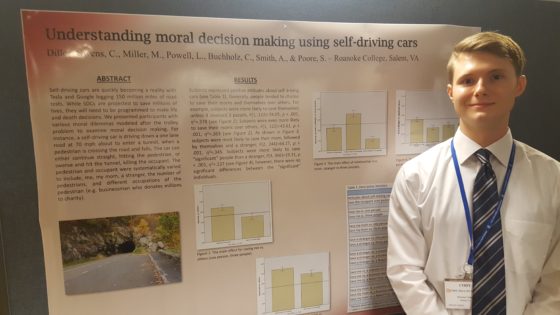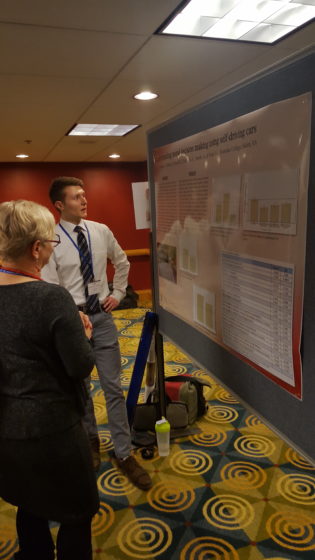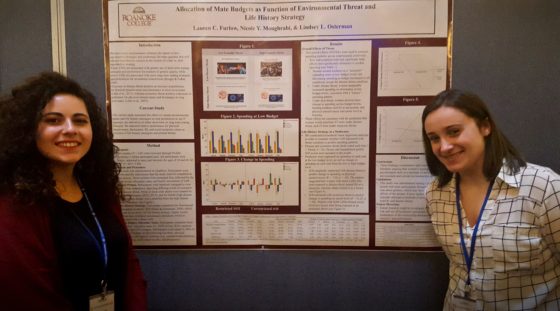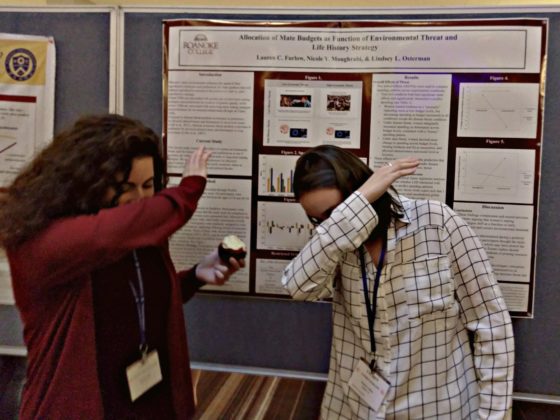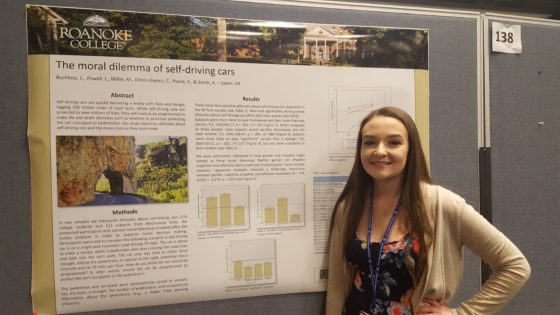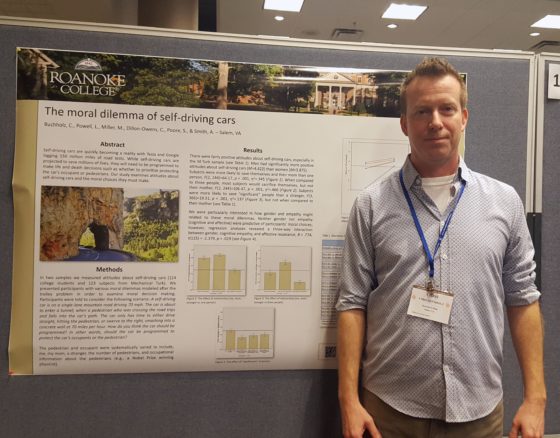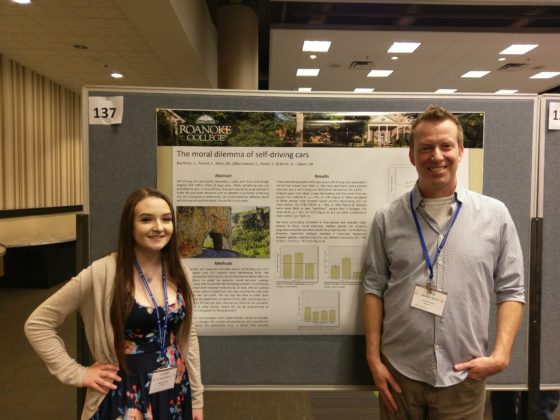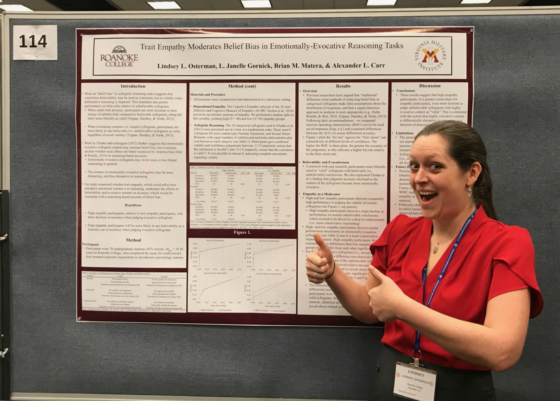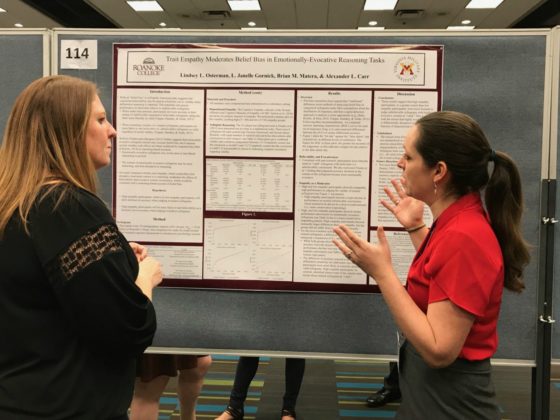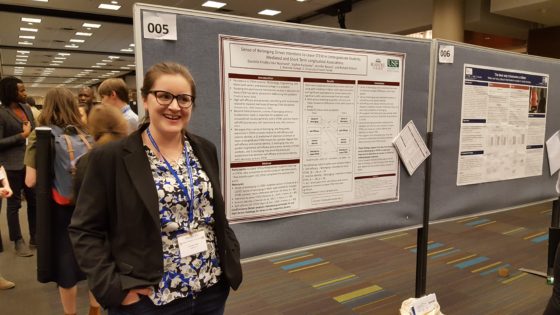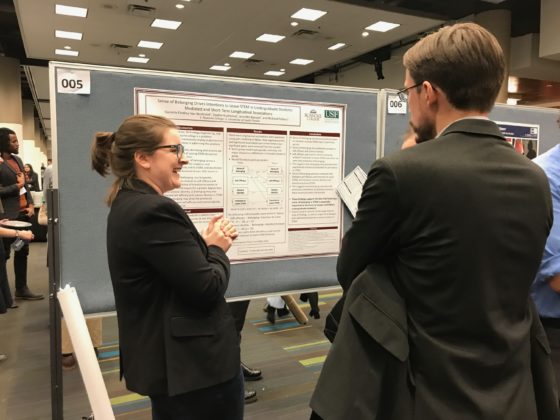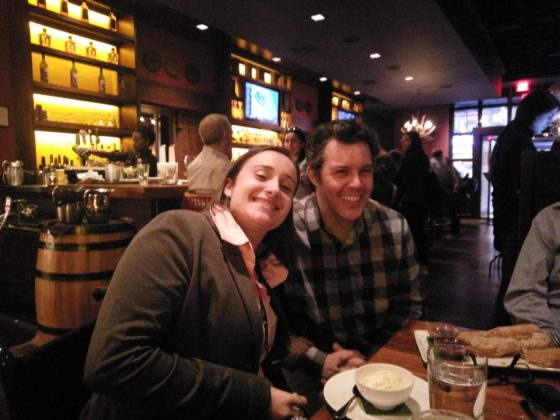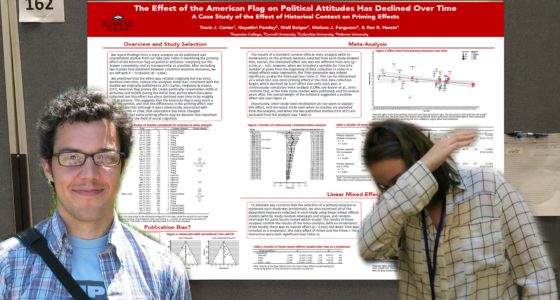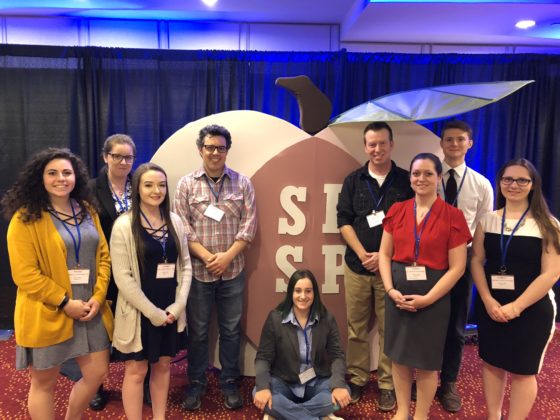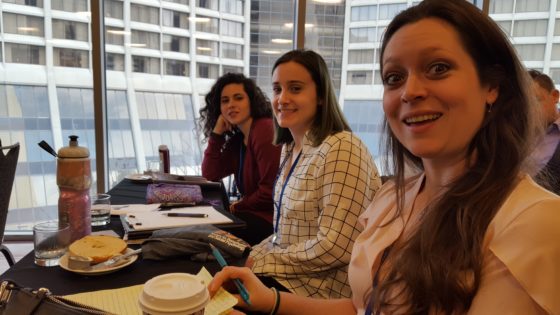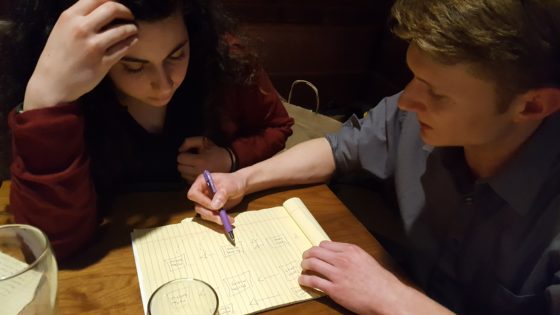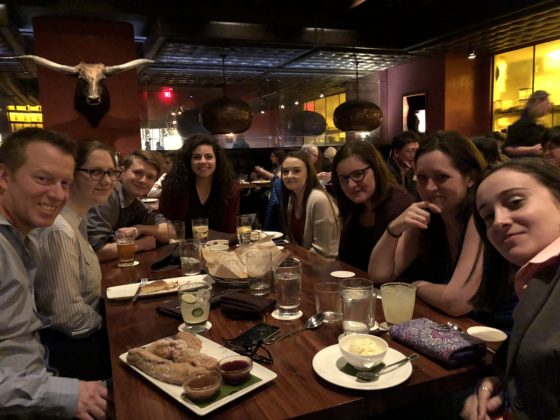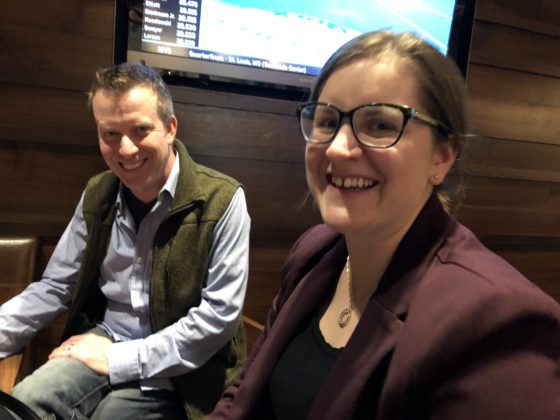The first weekend of spring break, Drs. Buchholz, Osterman, Carter, and Findley-Van Nostrand, in addition to several students, traveled to Atlanta to present their studies at the 2018 Society for Personality and Social Psychology Conference.
The students in attendance included:
- Cody Dillon-Owens ’19, who presented on “Understanding moral decision making using self-driving cars.” This study was supervised by Dr. Buchholz and included several other students, including Megan Miller ’18, Allison Smith, Lauren Powell ’21, and Seth Poore ’20. They found that participants generally thought positively of self-driving cars. Faced with a moral dilemma on who to save during an impending crash, the participants were generally more likely to save themselves and their mothers over anyone else. Participants were also more likely to save “significant” individuals rather than strangers.
- To learn more about the study, please contact Dr. Buchholz at buchholz@roanoke.edu.
- Lauren Furlow ’19 and Nicole Moughrabi ’19 presented on the “Allocation of Mate Budgets as Function of Environmental Threat and Life History Strategy.” From Dr. Osterman’s lab, Furlow and Moughrabi added to further research to the field discussing how “women’s mating psychologies shift as a function of early environment and current environment demands.”
- To learn more about this study, email Dr. Osterman at osterman@roanoke.edu.
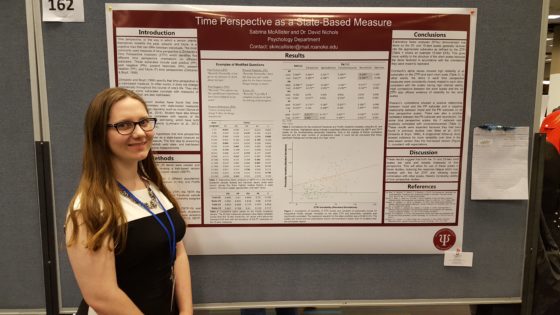
- Sabrina McAllister ’18, a member of Dr. Nichols’s lab, discussed the results of her study titled “Time Perspective as a State-Based Measure.” To learn more about her study, follow this link. (If you have any questions, please contact Dr. Nichols at dnichols@roanoke.edu.)
- Lauren Powell ’21, also a member of Dr. Buchholz’s lab, discussed the study titled “The moral dilemma of self-driving cars.” As this study was conducted alongside the first discussed study, the same researchers also worked on this inquiry. The main goal in this study was to see how gender and empathy would affect how the participants answered the moral dilemmas. However, the results showed that neither gender nor empathy predicted the answers, but that there was a “three-way interaction between gender, cognitive empathy, and affective resonance.” They also found that men possessed significantly more positive attitudes towards self-driving cars than women.
In addition, Drs. Osterman and Findley-Van Nostrand also presented their research. Specifically, Dr. O presented findings found in conjunction with Dr. Gornick of the Virginia Military Institute, Mr. Brian Matera, and Mr. Alexander Carr, titled “Trait Empathy Moderates Belief Bias in Emotionally-Evocative Reasoning Tasks.” To learn more, please contact Dr. Osterman at the above mentioned email address.
Dr. Findley-Van Nostrand’s study was titled: “Sense of Belonging Drives Intentions to Leave STEM in Undergraduate Students: Mediated and Short-Term Longitudinal Association.” She worked alongside Drs. Sophie Kuchynka, Jennifer Bosson, and Richard Pollenz, all from the University of South Florida. If you are curious about the study and want to learn more, Dr. FVN can be contacted at findley@roanoke.edu.
Finally, the day before the official SPSP conference began, Dr. Carter presented his study on “The Effect of the American Flag on Political Attitudes Has Declined Over Time: A Case Study of the Effect of Historical Context on Priming Effects,” at the JDM preconference.
The preconferences are one-day, mini conferences that allow for colleagues to gather to discuss their specific areas of interest. For Dr. Carter, this was to discuss the changes since the first study he and his fellow researchers had conducted in 2011, wherein his research revealed that using the American flag as a primer has become less effective in shifting participants towards more politically conservative attitudes and beliefs. The effect is shown to be roughly zero at present. To learn more, please contact Dr. Carter at tjcarter@roanoke.edu.
(Unfortunately, no pictures were taken of Dr. Carter while he was presenting at the JDM preconference. Instead, Dr. O provided a dramatic reenactment via hard work and editing skills.)
When asked about the experience, Dr. Osterman said…
We had a fantastic time at SPSP, and all of our student presenters did a wonderful job of talking about their research with other scholars. They represented the college and department exceedingly well.
Cody seconded this, saying:
SPSP went really well! It was a wonderful opportunity to present research to a large body of our peers in psychology, as well as learn about a lot of the exciting new research that’s being conducted in the field. I definitely look forward to attending my next conference!
Congratulations to our students and professors for their successful SPSP conference!
Get connected!
Instagram & Twitter: #PsychRC @RC_Psychology
Facebook: https://www.facebook.com/rcpsychology
Blog: https://psych.pages.roanoke.edu/
Linked In: https://www.linkedin.com/groups/RC-Psychology-8140491/about
Website: http://www.roanoke.edu/inside/a-z_index/psychology
